MD- DIGITAL ASCENT



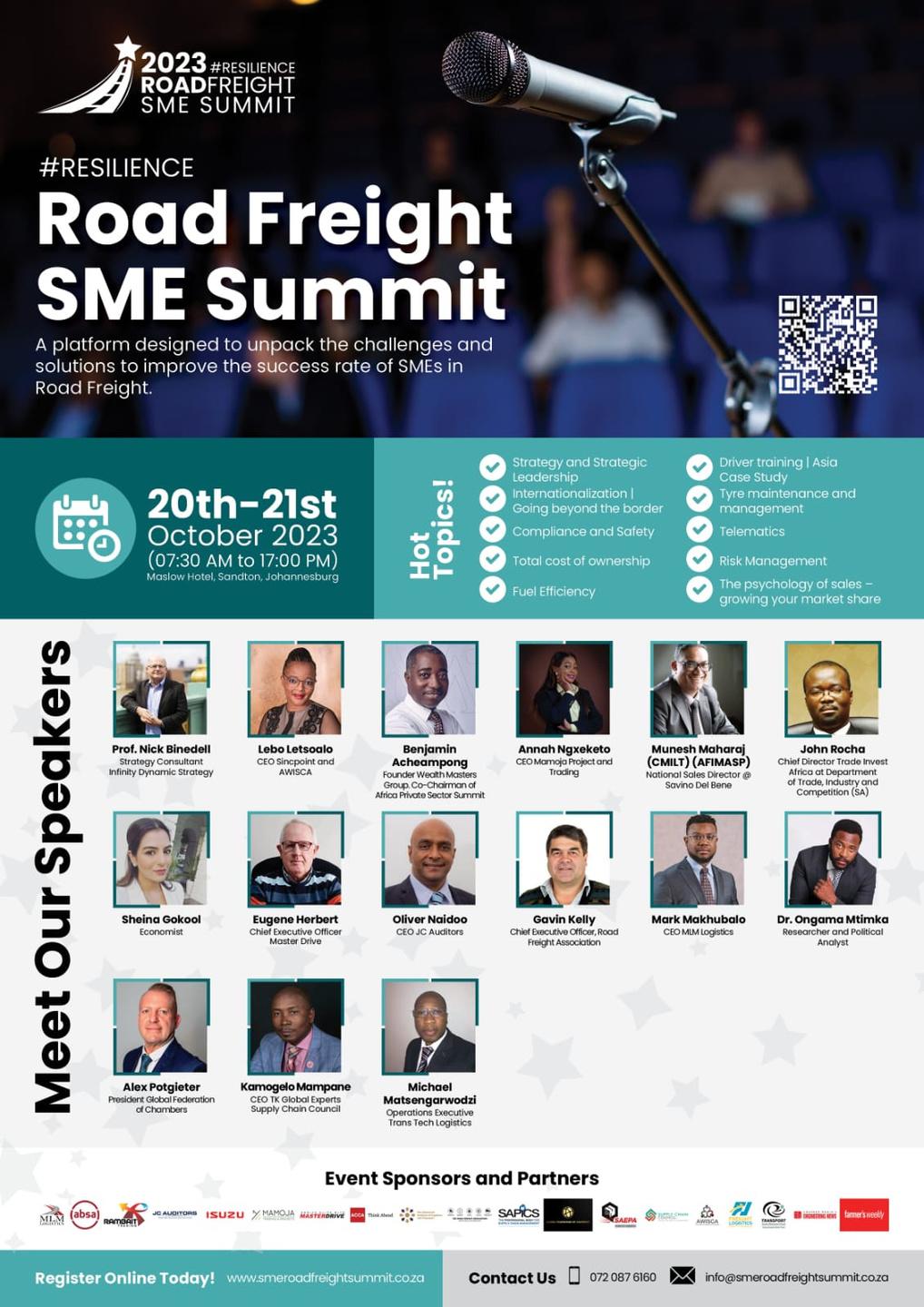






EDITOR IN CHIEF
Lunga Kakaza lunga@houseofkumkanimedia co za

SALES DIRECTOR
Thabang Kobue thabang kpbue@houseofkumkanimedia co za
ACCOUNT EXECUTIVE
Cyril Nesengani cyril@houseofkumkanimedia co za
ACCOUNT EXECUTIVE

Koketso Lesabane koketso@houseofkumkanimedia co za
SOCIA MEDIA MANAGER
Daisy Heynes daisy@houseofkumkanimedia co za





The startup scene in south Africa is currently buzzing with energy. Entrepreneurs are dressed sharply, pitching ideas, raising funds, and pursuing their aspirations with gusto. While the excitement is contagious, it is essential to acknowledge that failure is a common occurrence. Amidst the glamorous stories of overnight success, it is crucial to remember that these are outliers in a sea of aspiring entrepreneurs.

Many will face setbacks and challenges before reaching any level of achievement. Although there are resources available to support startups with business plans, finances, and marketing strategies, emotional support is often overlooked. It's important to recognize that failure is not the end; rather, it presents an opportunity for growth and learning. Striking a balance between chasing dreams and accepting the inevitability of failure is key in the entrepreneurial journey.
LUNGA KAKAZA Editor in ChiefMrs.ApeleleSongohasover10yearof combinedexperiencein Entrepreneurship,filmandtheater industries.Hespecificfocushasbeenin filmproductioneitherInfrontofthe cameraactingorbehindthescenesas aProductionAssistantforbothlocaland internationalproductions.


SheisthefounderofEkasiOnline Services,anonlineserviceproviderthat issettoassistpeopleinthetownships withfacilitatingtheirapplicationsfor variousgovernmentservicesandprivate securityservices.
Thecompanyvisionistomakethe applicationprocessseemlessllyasitcan bestrenuousandfrustratingtostandin longqueuesfortheelderlyanddisabled. SheiscurrentlyoperatinginCapeTown, WesternCape.EkasiOnlineServicesis aimingtogrowthroughoutSouthAfrican inordertoreachmorepeopleinneedof theirservice.
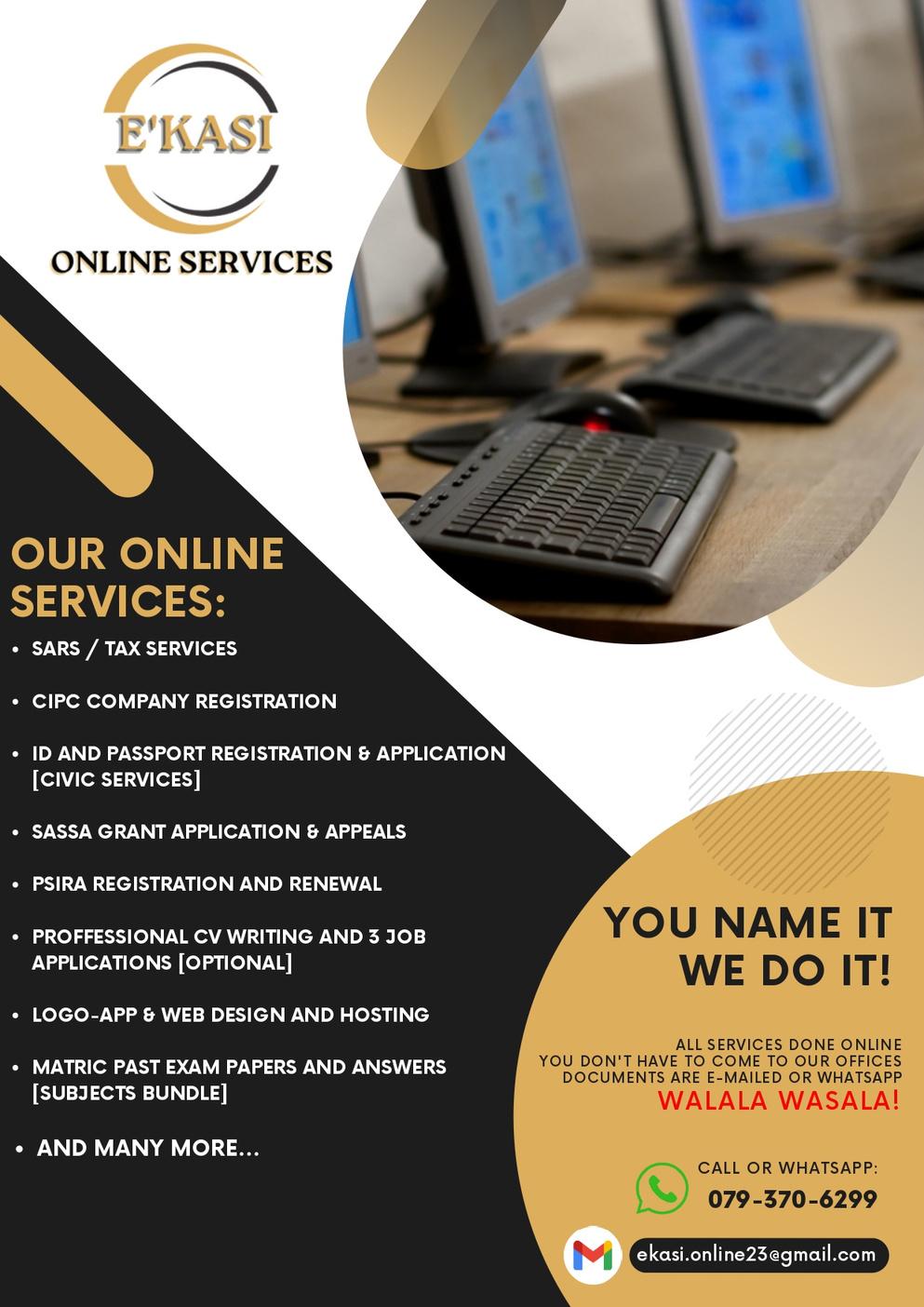
Under the theme: Sustainable Mining and Investment- The Future in Eastern Cape Province The Eastern Cape Province Mining Indaba seeks to capitalize on attracting investors from the Mining, Energy, Technology, Construction, Infrastructure and Agricultural Sector.

The main goal of the Eastern Cape Province Mining Indaba is to contribute towards the efforts to position the EC province as a destination of abundant opportunities. Through effective collaboration and creating sustainable partnerships, the two-day MINING INDABA aims to attract the much-needed investments to expand the mining exploration, development, and technological investment opportunities.
In consideration of the Social Labour Plan (SLP) and Corporate Social Investment (CSI) practices, the Eastern Cape province will use these investment opportunities as gateway towards creating sustainable platform for mines and other related businesses to start looking at the Home of Legends as a province of priority, at which investor relations and opportunities could be directed towards,” said Tando Mandela, Managing Director of EASTERN CAPE MINING INDABA.
Ms.TandoMandela-Founderofthe“EasternCapeProvince MiningIndabaThe 2023 INDABA Delegates will include Parliamentarians, Mayors, Senior Government Officials, CEOs of State-Owned & Private Entities, Captains of the Industry, and potential investors They’ll present, discuss, and identify potential solutions that will change the economic trajectory of the province In addition, the delegates will share learnings on challenges and potential opportunities within the mining sector.
Historically, the Eastern Cape has been a labour contributor to the mines in provinces such as Gauteng and the North West, despite the province being endowed with the abundance of minerals which if fully explored Working in partnership with accredited training institutions, the EASTERN CAPE PROVINCE MINING INDABA has already made enormous progress in establishing the partnerships in Portable Mining Skills and Artisan Academy with a target to enroll 100 learners when it opens its doors.
“The academy is a textbook example of the efforts that are in place to reposition the Eastern Cape as a mining and development hub. It’s an allimportant academy that’ll provide quality education and positively influence individuals, particularly youths and women, by equipping them with the knowledge necessary to effectively carry out duties aimed at industries such as mining and related businesses, the launch of the Emerging Youth and Women in Mining South Africa will be the vehicle to ensure key support structures and resources are in place and working effectively” Mandela said.
The Eastern Cape Province Mining Indaba (ECMI), Emerging Youth and Women in Mining South Africa (EYAWIMSA) and The Industry Magazine are positioned to serve as a platform that seeks to create an inclusive diversified voice in the mining sector ,and the mining service value chain for investor relations , awareness and to create business networking environments that will aid toward economic development The Eastern Cape Province is Historically a major labour sending area, Eastern Cape is endowed with mining opportunities however investments and exploration is required and the Eastern Cape Province must be intentional in taking up space in the mining space and the dialogues.
In consideration of the Social Labour Plan and CSI, the Eastern Cape Province will use the investor and partner opportunities as a gateway to a cost sustainable platform for mines and other related businesses to start looking at the Eastern Cape Province as one of their province of priority where investor relations and opportunities could be directed towards. Members of the media are invited to cover this seminar Indaba that will be held as follows, please register for media accreditation
Dates: 17th – 18th October 2023
Venue: The East London International Convention Centre (ELICC)
Time: 08h30 – 17h00
For media inquiries, please contact Ms Phumza Bodoza
Stakeholder Relations Manager
Cell: +27 83 645 3153
E-mail: info@ecminingindaba.co.za



Hi Zipporah, before we kick off, please tell us more about yourself
I’m a corporate marketing and communications executive with more than 28 years ’ experience in multinationals and JSE-listed companies, including in the FMCG, oil, engineering, and logistics sectors. I’ve worked for Altron, The Coca-Cola Company. Sasol, BP, logistics company DPD, engineering firm Zutari and in the public sector.
My career has taken me to the rest of Africa and the UK, repositioning brands in B2B and B2C markets, managing crisis communications, driving internal communications for a winning culture, and building reputation and relationships with stakeholders in governments and the investor community

What do you do now?
I’m the founder and MD of Digital Ascent, a business dedicated to accelerating digital transformation in small, medium, and micro enterprises (SMMEs) By that we mean we would like to increase the rate at which these entities are adapting digital technologies to spur their growth Digital Ascent provides holistic digital solutions for Enterprise Supplier Development programmes to bring SMMEs online At the same time, we work with individual SMMEs who are keen to develop an online presence that will bring awareness to what they do and help them attract customers in the global online market We believe with the right digital support delivered by experts, micro and small businesses can grow into medium and later large enterprises This is what excites us, seeing the growth of small businesses we work with once we have helped them with with interventions such as building their online presence and implementing carefully planned digital marketing
At Digital Ascent, we also facilitate SMMEs’ digital storytelling, curate panel discussions on small business matters and give Masterclasses on digital marketing for small companies that are starting off on this digital journey.
Why are SMMEs so important?
Year after year, economists and growth experts emphasize a common theme: SMMEs have the potential to make a substantial impact on job creation and innovation A recent study by the International Finance Corporation estimates that SMMEs contribute up to 34% of South Africa's GDP and employ 60% of the workforce However, these enterprises face significant challenges, with the top three barriers identified as financial support, human capital, and access to markets
What are the main challenges small business’ face?
Access to Capital: Numerous studies highlight the challenge of obtaining adequate funding for small businesses, particularly for startups and early-stage ventures, hindering growth and expansion
Market Competition: Small businesses often struggle to gain market share in industries with intense competition, where established competitors possess resources and brand recognition that can be hard to match
Regulatory and Compliance Burdens: Navigating complex regulations and compliance requirements can be time-consuming and costly, diverting resources away from growth activities
Lack of Skilled Workforce: Finding and retaining skilled employees can be challenging, especially for small businesses with limited resources, leading to skill gaps that hinder growth
Limited Access to Technology: Reluctance to adopt new technologies and limited access to tech resources can put small businesses at a disadvantage, affecting efficiency and competitiveness
Market Access and Expansion: Expanding into new markets, whether domestic or international, requires resources and strategic planning, posing challenges for small businesses
Limited Networking and Partnerships: Building business contacts and partnerships is crucial for growth, but small businesses may face difficulties establishing and nurturing these relationships

Access to Information and Market Intelligence:
Lack of access to relevant market information and intelligence can limit a small business's ability to make informed decisions and adapt to changing market conditions
Operational Inefficiencies: Inefficient processes and operations can lead to higher costs and reduced profitability, requiring effective streamlining for small businesses to thrive
These barriers may vary in significance based on industry, location, and individual circumstances. Overcoming them often requires strategic planning, resource access, and adaptability to changing market conditions
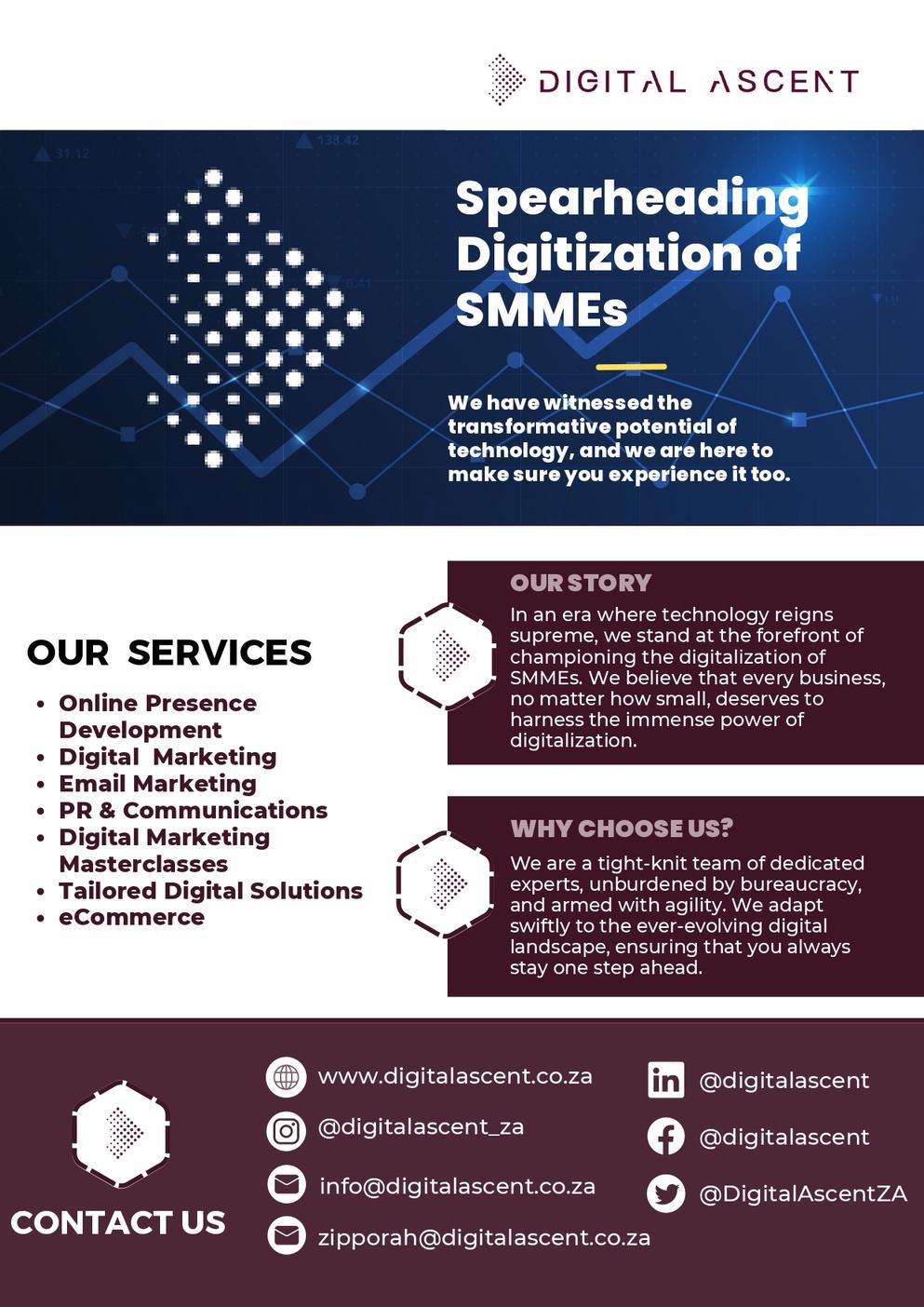
The digital revolution has brought about profound changes in the way businesses operate For small businesses, this digital transformation represents a golden opportunity to compete and thrive in an increasingly competitive marketplace.
In today's digital age, having a robust online presence is paramount Small businesses can no longer afford to ignore the potential of the internet. Establishing a website and engaging in social media marketing can be the first steps in building this presence Social media platforms like Facebook, Instagram, and Twitter offer cost-effective ways to reach and engage with a global audience. A well-crafted online presence can significantly boost brand trust, visibility, attract new customers, and foster customer loyalty
Maintaining healthy and lasting relationships with customers is vital for any business's growth Digital CRM tools enable small businesses to manage customer interactions, track preferences, and provide personalised services efficiently. These systems help businesses stay connected with their customers, gather valuable feedback, and tailor marketing efforts to individual needs A personalised approach can lead to increased customer satisfaction and loyalty, which are essential drivers of growth.
Investors rely heavily on data when evaluating potential investments. Small businesses can leverage digital tools to aggregate and present data that paints a clear picture of their operations This data may include financial metrics, sales trends, customer demographics, and market analysis. Providing investors with comprehensive, real-time information can make a business more appealing and instil confidence in potential backers Such investments can inject the capital needed for expansion and innovation.
With the increasing importance of digital assets such as websites and data, cybersecurity has become a critical concern for businesses of all sizes Small businesses are no exception Implementing robust security software and practices is essential to protect sensitive customer information, financial data, and intellectual property A security breach can have devastating consequences, including loss of trust and financial losses By safeguarding their digital infrastructure, small businesses can operate with confidence and minimize risks
And is this what you help businesses do so they can move forward?
Yes, with these digital tools and our expertise, along with key partnerships, small businesses can leapfrog other start-ups
I believe that digitisation offers a solution to the data problem faced by small businesses Entrepreneurs can invest in technologies to collect essential data about their operations, encompassing not only financial data but also market trends, industry competitiveness, and sector leadership
Digital transformation is undeniably the key to acquiring the necessary data for banks and lenders to consider providing seed funding to SMMEs Embracing technology can significantly enhance entrepreneurs' chances of success and ease the challenges of starting and running a business
Several countries have recognised the importance of supporting the digital visibility of small businesses Singapore and Atlanta serve as excellent examples Singapore's government and private sector initiatives have created an ecosystem in which SMMEs thrive through digitalisation. Atlanta, in the US, has seen significant growth in its small business sector due to robust support systems and digital infrastructure.
Moreover, compliance with revenue services and other regulatory bodies can be cumbersome for SMMEs. Digitisation simplifies these tasks, reducing administrative burdens and allowing business owners to focus on growth.
Anything else you would like to add?
Digitisation of business processes and digital marketing can be powerful catalysts for the growth of South African SMMEs By addressing barriers and leveraging technology, these enterprises can unlock their full potential Government support, private sector partnerships, and a commitment to digital skills development are vital components of this transformative journey. With the right support and a digital-first approach, South African SMMEs can play a more significant role in driving economic growth, creating jobs, and fostering innovation
In today's fast-paced business environment, digitalisation is not merely an option; it is a necessity for small businesses looking to thrive and grow. By establishing a strong online presence, implementing CRM systems, leveraging data for investment attraction, and prioritizing cybersecurity, small business owners can leapfrog their competitors and accelerate their journey to success In a world where technology continues to evolve, embracing digitalization is the key to staying relevant, competitive, and agile in the ever-changing marketplace


The financial year-end is upon us and with one to two months to go, depending on when an organisation wraps up its year, business owners are ensuring best practices are in place to improve their B-BBEE score for the coming year. For a few organisations, the next few weeks are crunch time
There is still time; however, it’s important that organisations know how to achieve quick wins to improve the B-BBEE score.
The B-BBEE scorecard measures the level of compliance against five elements, each of which are in turn measured against targets with specific weightings. It may seem overwhelming at a glance, but a solid plan will help your organisation achieve, improve and/or retain a healthy B-BBEE score
Here are six tips for organisations looking to improve their B-BBEE score:

1.
Make sure you have assessed your data and calculations
Using BEE scorecard software is the best way to go. This will allow for real time tracking of your progress and identify the gaps to close.
Depending on the codes or sector codes against which the company is measured, there might be bonus points that can be secured. This does not require additional budget or money to be spent in most cases.
These elements are usually seen as the quick fix elements that can be implemented, and maximum points achieved in a short space of time but there are many risks associated to these elements. One of which is the potential of having to spend large amounts of money that has not been budgeted for. Another risk is not knowing the benefit factor (or recognition percentage) of the type of contribution made.
These recognition percentages are applicable to enterprise development, supplier development and socio-economic development. One example would be the recognition of a loan contribution An interest-free loan contributed towards an enterprise development or supplier development beneficiary is only recognised at 70% of the outstanding loan amount. This would impact the achievement of the maximum score and the entity would have to close the 30% gap by either increasing the loan amount or to top up with an additional contribution such as a grant, which is recognised at 100% of the value contributed.
The measurement of preferential procurement is linked to suppliers of the measured entity and their respective BEE credentials. It’s important to obtain as many BEE certificates / affidavits from suppliers as possible A measured entity has up to the date of verification to gather these.
Another area of improvement in a short space of time is to review and recon the total measure procurement spend (TMPS) with the supplier spend. Aim to achieve a balance between these two of 10% or less. The smaller the margin, the more positive the impact will be on the score.
Furthermore, don’t forget about the enhanced recognition of a multiple factor of 1.2 under this element. If the measured entity has:
A supplier who is also the recipient of supplier development contributions and have a minimum three-year contract in place;
A Black-owned QSE or EME which is not a supplier development beneficiary but that has a minimum three-year contract with the measured entity; A supplier that is at least 51% Blackowned or at least 51% Black womanowned utilising the Flow Through Principle.
Such supplier/s would qualify for this enhancement on their spend. In layman’s terms, every R100 spent with such qualifying suppliers, R120 is recognised towards the preferential procurement score and, as such, can elevate the points.
Implement training programmes that award points in various areas of the skills development scorecard and possibly management control as well. A learnership programme (or Category D as per the learning programme matrix) is one such example. With such a programme, a measured entity can achieve as much as 16 points out of a total 20, if done correctly. The recognition of Category D programmes is threefold, course cost, headcount and stipend or salary is claimable towards points compared to a training programme such as a short course (or Category F of the learning programme matrix) where only the course cost is recognised towards points but has limitations too.
Maintain or improve the B-BBEE status level (before YES B-BBEE recognition) obtained in the first year of participating in the YES Initiative; Achieve at least the 40% sub-minimum for all three priority elements; or Achieve an average of 50% across the three priority elements

Unfortunately, there is not a one-size-fitsall quick fix plan that a measured entity can apply to improve its B-BBEE score. By understanding your company and its limitations as well as having the knowledge, expertise and competence of the B-BBEE Codes or Sector Codes against which the entity is measured, a plan can be devised even with only one month to go.
A measured entity has the opportunity to increase their B-BBEE status level by up to two levels by participating in the initiative and meeting their targets It is however imperative to understand that an entity can only consider the YES Initiative if they have achieved a compliant B-BBEE status level. Furthermore, there are prerequisites to meet, which include:

Relying on a single income may prove unfeasible, but before getting that side hustle off the ground, employees must know what their employment contract and work policy states about supplementing their income with another job or personal business, in case they find themselves facing disciplinary action, says Tertius Wessels, advocate and legal director of Strata-g Labour Solutions.
“As the law does not explicitly limit employees from having a second job, staff members who may find themselves with more flexibility owing to the increase in remote working may want to fill that gap with a side gig. Employees often feel having a supplementary income does not violate their employment relationship with their employer as there is often little perceived conflict of interest, especially when the correct policy clearly defining the expectations of an employee and side hustles are not in place,” explains Wessels.
A recent report by the Henley Business School shows that as many as 27% of working South Africans currently have side hustles.
Wessels says employers, however, are not always welcoming of an employee having other financial commitments outside of their daily employment, citing employees may struggle to fully engage in their daily tasks because of their side gig. But employers cannot enforce employees to not take up alternative income, especially when there is no obvious conflict of interest.


However, employees have the onus of letting their employers know if they are involved in moonlighting or have a business outside of the workplace. More so, even without the employment contract and or work policy unequivocally stating it, employees must refrain from taking up any activities that negatively impact their performance with their employer and must desist from any conduct that places the interest of the worker above that of their organisation.
Furthermore, employees who have garnered particular skills often feel that they can be used outside of their employment and soon engage in charging individual clients for the same services their employer offers. This is a clear conflict of interest because an employer who has permanently hired an employee does so to acquire the sole use of their skillset and when that same talent is no longer used to advance the interest of the employer, a conflict arises. Wessels says while conflict of interest may be broad, it is one ground an employer can cite as cause for dismissal.
The easiest way for employees to know whether they are contravening their work policies is to ask themselves whether their current side gig actions are in direct or indirect competition to that of their employers; whether or not they use company resources to execute their side business; or if their side hustle detracts their attention from performing their function with their employer? “The best way to know if there is a conflict and to avoid it is to declare to your employer what you are engaged in and if they give you the go-ahead, then you are in the clear. Because what may be permitted in one organisation may not be allowed in another. Disclosing your interests to your superiors about a side gig can also save you from facing disciplinary action and builds a level of trust between employer and employee,” concludes Wessels.


The term “side hustle” has become widely used, this as workers are under financial pressure to create additional income. Pfunzo Muligwe is one of many people that left their job to become a fulltime entrepreneur after his side hustle starting to grow. Nowadays it’s normal to see people with fulltime jobs promoting their small businesses and side hustles on social media in a bid to make extra money.
Like many South Africans Pfunzo Muligwe started his business as a side hustle while he was still employed.
He wanted to supplement his income, create jobs, and uplift his community. To do this, he started a business called Silverblue Technologies which offered ICT solutions. While running his Gauteng based business, he continued to work and study. “I have five qualifications and my studies inspired me to change the vision for my business,” he said.
In 2019 he changed his business to Silverblue Group Services, a business registered with the South African Pest Control Association. The business stopped offering ICT solutions and transitioned into pest control, vegetation management, rental collections as well as cleaning and caretaking services.

Today, Pfunzo is a qualified electrical engineer and entrepreneur with a business that has a footprint in Gauteng, Mpumalanga, and Limpopo.
Statistics South Africa’s Quarterly Labour Force Survey shows that four provinces recorded the largest increase in the number of people employed. Limpopo recorded that 80,000 people moved from unemployed to employed.
Creating jobs in a country with a high unemployment rate is important to Pfunzo and he has created nine jobs for young people. His business also has an extensive clientele of 1200 customers and has serviced over 80 buildings; these are achievements that Pfunzo said were no easy fete.
The business was self-funded through personal loans and capital injection from his pension fund when he left his permanent job in 2019. One of the biggest challenges his business faced in the early days was they had a vast service offering that needed a lot of capital expenditure. “We also struggled a lot with cash flow issues as we had to manage marketing, consumables, and running costs with late payments also hindering us,” he said.
“Small businesses are playing their part in being part of the solution to the country’s unemployment problem. “I’m proud that Limpopo, one of the provinces where Silverblue renders its services was recorded to have the largest employment increases,” he said.
Those were tough times for the business, but he persevered because he believes hard work pays off. “By persevering, we have seen our revenue double every year for the past three years. We have expansion plans that will allow us to grow our footprint,” he emphasized Pfunzo has words of encouragement for emerging entrepreneurs. “Don’t be afraid to evolve, initially my business offered ICT solutions and now we offer cleaning and pest control services; this allowed us to sign multiyear contracts,” he concluded.
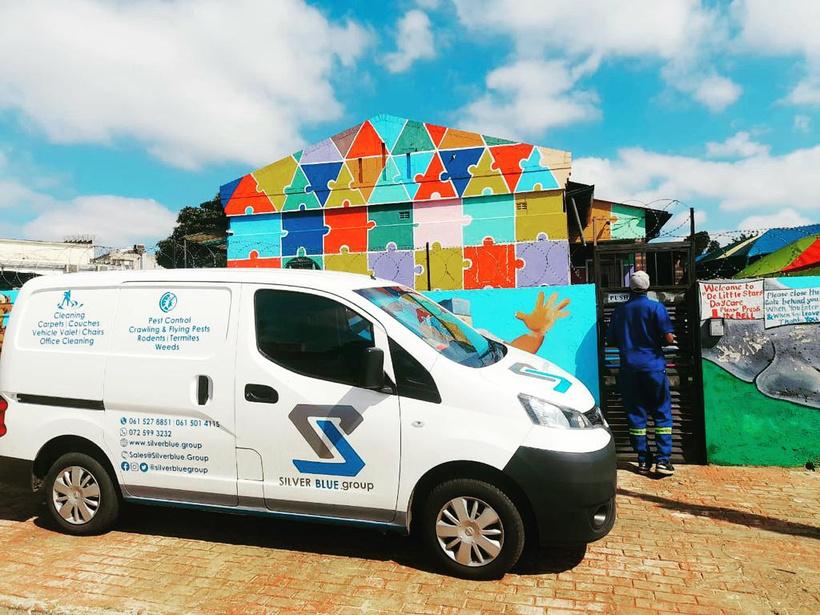

As the nation grapples with environmental challenges and the unemployment crisis, the rise of eco-entrepreneurship assumes a pivotal role in shaping the sustainable future we all strive towards. Charlotte Nell is a perfect example of a local entrepreneur that started a business in the waste management sector to ensure her community lives in a clean environment.
The waste management sector is a powerful avenue for transformation that’s gaining prominence. Within this sector lies the potential for entrepreneurs to address environmental concerns and unlock opportunities through a circular economy.
In a world beset by mounting environmental crises, the story of Charlotte Nell and Aquila Environmental emerges as a beacon of hope. Charlotte’s journey from waste management specialist to entrepreneur is a testament to her unwavering commitment to making the world acleaner place.
Her path took root during her tenure at a Western Cape local municipality, where she delved into waste minimisation efforts. This role honed her understanding of the challenges local authorities grapple with in managing waste, opening her eyes to the opportunities for private sector intervention.
In 2018, her business Aquila Environmental came into being. This Cape Town-based venture specializes in waste management consulting. “I took my expertise and channelled them into a business that does waste minimisation, resource recovery, and responsible disposal.”

She believes that by optimising waste management practices, she can directly improve living conditions and reduce environmental pollution. The positive impact of her waste management consulting services ripple outward, influencing more people to adopt sustainable practices.
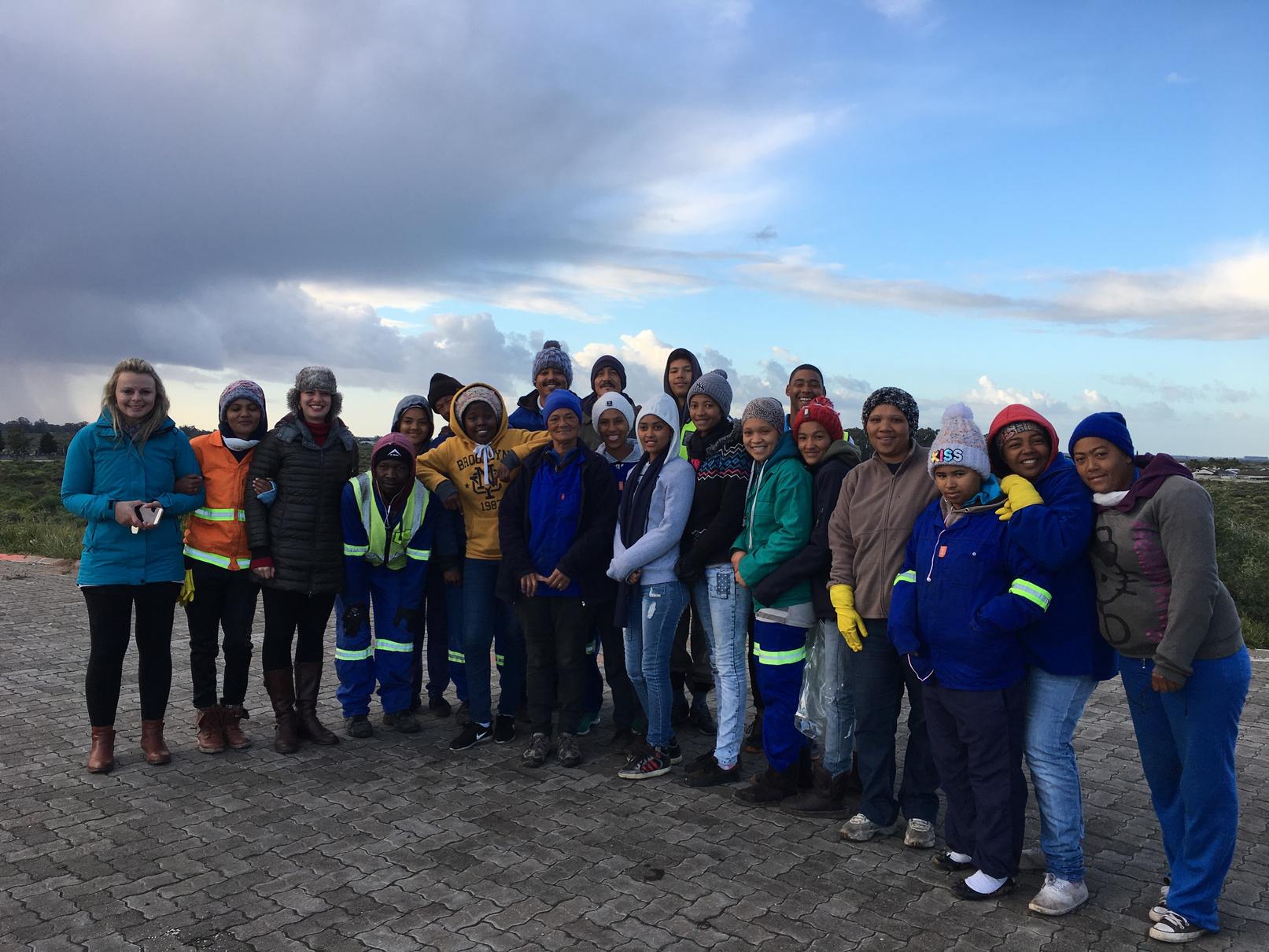
Charlotte’s journey as an entrepreneur was not devoid of challenges. One formidable hurdle was navigating the landscape of funding for communitybased projects. She has plans to run waste management community-based projects, but the lack of funding is a hinderance. Despite this challenge, Charlotte is determined to explore innovative solutions. She also envisions a foundation side to her business, channelling funds into targeted waste minimisation projects. These projects are envisaged not as isolated clean-ups, but as holistic endeavours that unite diverse stakeholders in collaborative, communitybased waste management initiatives.
“We regularly create short-term employment opportunities. Since inception, we have helped approximately 300 people, who have all benefitted from projects I’ve led over the years,” says Charlotte. As Charlotte pushes forward, her mission is urgent: to bridge the gap between waste and responsible consumption. She urges individuals to envision a world where waste generation ceases, prompting them to make globally conscious choices that can alleviate the waste crisis we currently face.
For aspiring entrepreneurs, Charlotte offers a simple yet profound piece of advice: “Seek out your passion and relentlessly pursue it In a world where motivation wanes without genuine interest, we all need a reminder that success blooms most vibrantly when fuelled by purpose,”
she concluded.


It wouldn’t be incorrect to describe entrepreneurs Tumelo Lethoba and Desmond Mabesele as accidental environmentalists. They started their business Eyedash Creatives to provide a design and branding service but today they are biodiesel producers that are reducing cooking oil wastage.
In 2019, Gauteng Kathlehong-based Lethoba and Mabesele approached a local compostmanufacturing business to offer Eyedash Creatives’ design services.
The compost products were unbranded, presenting an ideal opportunity for them to design and flex their creativity Their pitch was well received, marking the beginning of a business relationship.
This opportunity exposed Lethoba an Mabesele to unexpected entrepreneurship endeavours “When we became distributors, we realised there was a demand for compost and we became passionate about compost and the environment,” says Lethoba.
While they were distributing compost, the pair caught the eye of the Department of Agriculture, which approached them to participate in an incubation programme to develop biodiesel. Besides not knowing what biodiesel was, the pair knew they couldn’t allow this opportunity to pass them
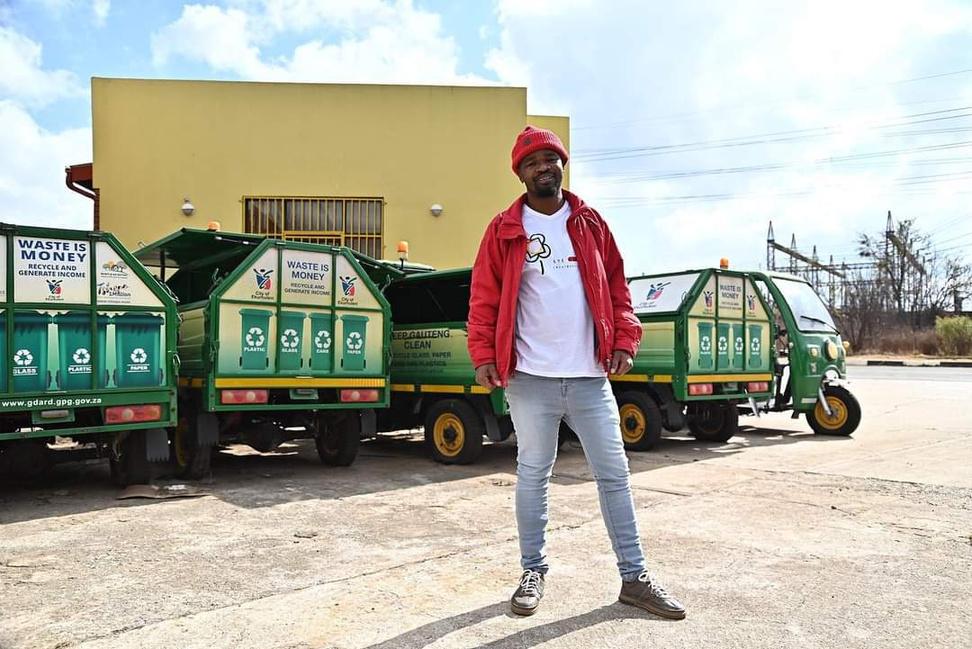
Today, their business has transitioned from offering design services to recycling cooking oil to create biodiesel. “We see how it helps the community and it is a cheaper option Local businesses that use generators during loadshedding can go for longer with biodiesel without the environmental damage of petrol. I think that’s a win-win situation,” says Lethoba.
The pair sources their main ingredient from surrounding communities, offering a buy-back incentive for households with cooking oil waste they want to get rid of It’s become a valuable source of income for many townships that are gripped by unemployment and poverty.

Local businesses, especially kota shops and eateries, are also on board. They benefit from not having to worry about the collection of their food waste, entrusting the free service to Eyedash Creatives who use their oil waste in an environmentally conscious way. Their systematic collection of cooking oil waste helps to reduce damage to the community sewage system, which often experienced failures due to the clogging up of pipes with oil waste
The business also ran campaigns with the Department of Waste in Ekurhuleni to raise awareness about the impact of oil waste on the sewage system and other cleaning aspects.
Their biodiesel business is withstanding challenges that are typical to new ventures while achieving impressive milestones along the way. Eyedash Creatives was one of two South African companies selected to participate in the EU-funded Climate Launchpad initiative, the world’s largest green business ideas competition. The business is also part of the Circular Economy Accelerator, which is an entrepreneurship incubation programme that helps businesses in the circular economy to grow. The accidental environmentalists have hopes to continue being on a winning streak so they can significantly reduce the harm caused by used oil has on the environment and sewage systems.
 By Michael Makinta
By Michael Makinta
Ice plays an important role in the day-to-day running of many businesses. Restaurants and hotels rely on ice to prevent the growth of harmful bacteria in meats This is particularly crucial for seafood that is consumed raw, such as sushi Similarly, hospitals use ice to cool blood, preserve organs and tissue during transportation.
South Africa’s ice-making industry currently faces a significant challenge: there are not enough skilled people who know about technicalities of ice machines. This makes it difficult to get these machines repaired quickly and efficiently.

Lucas Ledwaba, a former cleaner and driver, has made it his mission to tackle this obstacle head on. In 2013, he founded Luc Ice Master, a company based in Edenvale, Johannesburg that specialises in the sale, installation, and maintenance of ice machines His clientele includes Spur, Roco Mamas, and several Engen Garages, to name a few.
Lucas’s tenacious journey into ice-making began more than ten years ago when he worked as a driver for a company that specialised in the sale of ice machines. His then-employer encouraged him to build up the necessary skillset, as there was growing demand in the industry He worked for two more years, gaining experience, before resigning to open his own company
Lucas admits that his first few years as an entrepreneur were not easy. I was working from hand to mouth until I enrolled in an entrepreneurial course that addressed all aspects of business management
The demand for ice is seasonal, and business usually slows down in the winter. Lucas points out that during this period, they dedicate their time to servicing their clients’ machines ahead of peak season.

ILoadshedding is an issue that has posed a great challenge for their industry To best tackle this, Lucas, and his team work according to a strict schedule Our appointments are set up according to the load-shedding schedule so that we are able to assist clients that need our help, he adds
Going forward, Luc Ice Master plans to manufacture ice machines in-house, becoming the first South African company to do so Lucas went to China to learn first-hand from manufacturers. He wants to make the process of servicing machines for his clients seamless and quicker. I found that the machines are not evolving with the smart technology we are using these days.
Lucas’s former employer believed in him and gave him a fair shot at entrepreneurship; he is now doing the same by uplifting fellow community members. I have trained a lot of people who now have their own ice machine businesses, and whenever I am overwhelmed with business, I refer clients to them.

He explained that upskilling young people about the ice machine business is important to him “Seeing people, I trained running their own ice machine business is what success looks like for me, ” concludes Lucas

Inthedynamicworldofbusiness,where strategiesevolveandmarketsfluctuate, oneconstantremains,namelycashflow It’stheheartbeatofanyenterprise, whetherabuddingstartuporan establishedconglomerate,andthe lifebloodthatfuelsgrowth,enables strategicinvestments,andensuresdayto-dayoperationsrunsmoothly.

Understandingandproactively managingcashflowisnotjusta financialexercisereservedfor accountantsandfinancialanalysts;itis amission-criticalimperativethatevery businessownerandmanagermust graspandmanage Understandingthe essenceofcashflowandhavingawellcraftedcashflowoptimisationstrategy canmakethedifferencebetweenmere survivalandexponentialsuccess.

Initssimplestform,cashflowisthe inflowandoutflowofmoneywithina business While,onthesurface,thisisa relativelysimpleconcept,thejourneyof moneywithinabusinessisfarfrom straightforward.Nuancesandintricacies liebeneaththesurface,demandinga clearunderstandingfromthoseatthe helm.
Businessownersandmanagersmustbe attunedtotherealitiesoftheircashflow –notjusttoensureitshealthbutalsoto leverageitspotential.Ignoringcashflow realitiestofocussolelyonbusiness activitiesisabitlikesailingin treacherouswaterswithoutanavigation system.So,whiletheallureofbusiness growthandinnovationcanbeenticing, neglectingcashflowcanjeopardisethe survivaloftheentireenterprise.
Aneffectivecashflowoptimisation strategyisonethattakesatwo-fold approach:first,directingdiscretionary cash,notimmediatelyrequiredfor short-termexpenses,intohigh-interest savingsandinvestmentaccounts
Secondly,aneffectivecashflowstrategy shouldincludearangeofliquidsavings optionswhereyourmoneycanbe accessedquickly.Eventhoughthey typicallyofferlowerinterestrates,they stillprovidesomegrowthandallowyou towithdrawyourmoneyquicklywhenit isneededforexpenseslikeemployee wages,stockacquisition,andeven unforeseenoperationalcosts.
Importantly,sucharelativelysimple cashflowstrategycapitalisesonthe powerofcompounding,whichcanturn evenmodestamountsofregular savingsintoexponentialgrowthover time.
Thekeycomponentsofaneffective cashflowpartnershipwithyourbank
Partneringwithabankisanintegral aspectofexecutingasuccessfulcash flowoptimisationstrategy.When evaluatingbankingoptions,consider thesefivepivotalcomponents:
Diversesavingsandinvestment solutions-
Lookforabankthatprovidesvarious typesofaccountssuitedtoyourneeds Thesecouldincludeaccountswith differentinterestrates,investment options,andforeigncurrencyaccounts tomanageglobaltransactions.
Tailoredpricingstructure-
Selectabankthatunderstandsyour specificbusinessrequirementsand goals,andcanadaptitspricing accordingly.Thiscustomisedapproach allowsforbettercashflowmanagement, tailoredtoyourneeds
Additionally,it'scrucialtounderstand howinterestratesarequoted.Different banksusevariousmethods,likequoting ratesatmaturity,nominalrate,or annualeffectiverate.Thesearen't directlycomparableandcancause confusion.Makesureyou'recomparing like-for-likeratestomakeaninformed decision.
Automatingfundtransfersfrombusiness accountstogrowthaccountseliminates theneedformanualintervention.This ensuresaseamlessflowoffundsand preventsmissedopportunitiesdueto oversight
Adashboardthatshowcasesyour businessbankingandcashflow managementinformationcanbea valuabletool Theabilitytoleverage dataisalsoessentialtobeableto accesskeyinsightsintoyourcustomers, markets,andbusinessoperations.These arevitalcornerstonesforeffective strategisinganddecision-making,and yourbankshouldbeofferingthe education,guidanceandtoolsyour businessneedstosupportandenable thesefunctions.FNBbusinessbanking clientshaveaccesstoallofthisviathe FNBBusinessHub.

